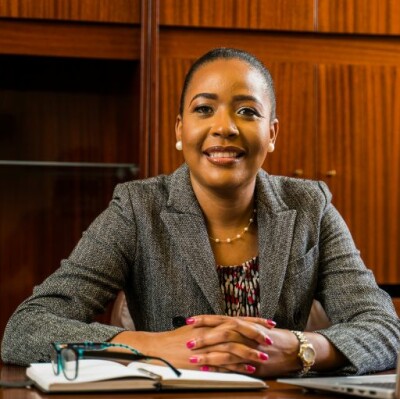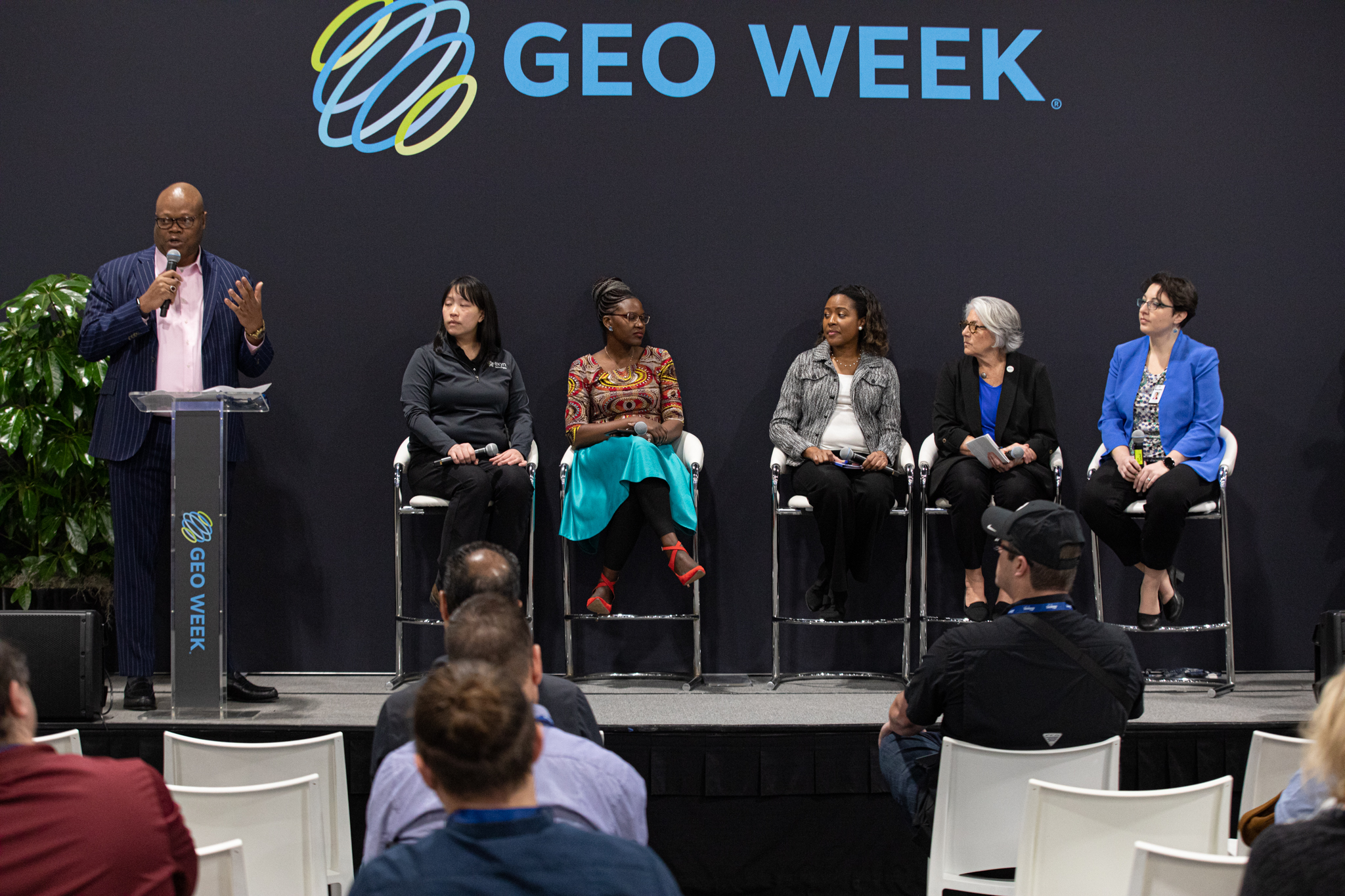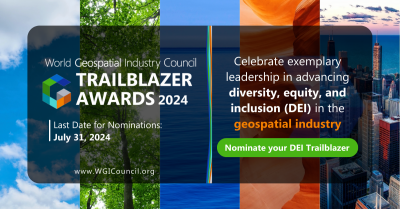Contributed by Valrie Grant
As the geospatial industry continues to evolve and grow, it is becoming increasingly clear that we must address issues related to diversity, equity, and inclusion in order to move forward as a field. This was the focus of a recent panel at Geo Week 2023 entitled “A Call to Awareness, Advocacy, and Action in the Geospatial Domain,” where experts shared their insights on this important topic and provided several recommendations for how we can address these issues in the industry.
The panel was co-organized by the World Geospatial Industry Council's (WGIC) Diversity, Equity, and Inclusion (DEI) committee. The committee recognizes the importance of promoting diversity, equity, and inclusion in the geospatial industry and has been actively working to address these issues. In addition to hosting information sessions and panels like this, the WGIC also established the "DEI Trail Blazer Award" in 2022, which will be an annual award going forward.
One key recommendation emerging from the panel was the need for greater awareness of the importance of diversity, equity, and inclusion in the geospatial industry. By highlighting the benefits of a more diverse and inclusive industry, we can create a greater sense of urgency around these issues.
The need for advocacy and action was also highlighted. This includes advocating for policies and practices that promote diversity and inclusion in the geospatial industry, such as transparent inclusive hiring practices, a structured approach to early tenure promotions that de-bias promotions, mentorship programs that support underrepresented groups, and educational initiatives that promote awareness and inclusion. In addition, it is important to take concrete steps to address issues related to diversity, equity, and inclusion, such as creating more opportunities for underrepresented groups and ensuring that they have a voice in decision-making processes.
The panel also emphasized the importance of building partnerships across different sectors and disciplines. This includes partnering with academic institutions to create more opportunities for students from underrepresented groups, as well as collaborating with other industries and organizations to share best practices and promote diversity and inclusion more broadly.
The panelists stressed the importance of ongoing dialogue and engagement around issues related to diversity, equity, and inclusion in the geospatial industry by engaging with professionals and organizations from different backgrounds and perspectives, as well as creating opportunities for open dialogue and learning.
The panel also outlined the need to build a diverse talent pipeline. By taking steps to build a diverse talent pipeline, we can help ensure the geospatial industry is equipped to tackle the challenges of the future.
It was highlighted that WGIC DEI committee is currently working on a white paper that will outline best practices for promoting diversity and inclusion in leadership roles within the geospatial industry. The paper will focus on issues related to leadership, mentorship, hiring practices, and educational initiatives, and will provide actionable recommendations for individuals and organizations looking to promote diversity and inclusion in the industry.
The WGIC is committed to promoting diversity, equity, and inclusion in the geospatial industry and recognizes the important role that these issues play in shaping the future of the industry. By taking a proactive approach and working to address these issues head-on, the WGIC is helping to create a more inclusive and equitable geospatial industry that better serves the needs of all communities.
While progress has been made in recent years to address some DEI issues in the geospatial industry, there is however still much work to be done to achieve true equity and inclusion as there are still significant barriers to achieving true DEI in the geospatial industry. These barriers include issues such as unconscious bias, lack of representation in leadership roles, and a lack of awareness of DEI issues among industry professionals.
Overall, there are some positive signs that the geospatial industry is moving towards greater diversity, equity, and inclusion but we are still nowhere close to creating a truly inclusive and equitable industry. It is up to industry leaders, professionals, and organizations to continue to work towards these goals and create a more diverse and inclusive geospatial industry.
The panel on “A Call to Awareness, Advocacy, and Action in the Geospatial Domain” highlighted several important recommendations for addressing issues related to diversity, equity, and inclusion in the industry. By increasing awareness, advocating for policies and practices that promote diversity and inclusion, building partnerships, and engaging in ongoing dialogue, building a diverse talent pipeline, among other positive actions we can work together to create a more diverse and inclusive geospatial industry that better serves the needs of all communities globally.
 About the Author: Valrie Grant is an award-winning entrepreneur, Geospatial and Strategy consultant. She is the Founder and Chairwoman of GeoTechVision, a knowledge services company. She is a member of the World Geospatial Industry Council’s (WGIC) DEI Committee and vice-chair of the United Nations Global Geospatial Information Management (UN-GGIM): Private Sector Network at the global level and the current Chair of UN-GGIM PSN: Americas.
About the Author: Valrie Grant is an award-winning entrepreneur, Geospatial and Strategy consultant. She is the Founder and Chairwoman of GeoTechVision, a knowledge services company. She is a member of the World Geospatial Industry Council’s (WGIC) DEI Committee and vice-chair of the United Nations Global Geospatial Information Management (UN-GGIM): Private Sector Network at the global level and the current Chair of UN-GGIM PSN: Americas.






